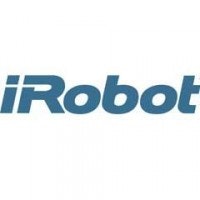
These investors, however, should be quite pleased with the latest news out of iRobot: it has purchased Evolution Robotics, which makes a cleaning robot specialized for hard-surface floors, for $74 million in cash. iRobot Corporation had about $160 million in cash and cash equivalents on its balance sheet at the end of the second quarter, and another $20 million in short term investments, versus only about $75 million total in liabilities. Therefore, the deal should not have too much of an impact on liquidity. According to iRobot’s press release, the purchase of Evolution Robotics will increase 2013’s revenue by about $23 million. Working off of iRobot’s net income margin for the first half of 2012 (6.6%) this would yield an extra $1.5 million in earnings, though the company also expects transaction-related charges in the fourth quarter of this year and during 2013. iRobot Corporation is in need of growth to maintain its stock price- it trades at 22 times trailing earnings, and 21 times forward earnings estimates- and this is how it has decided to deploy its cash.
iRobot’s own revenues were up slightly in the second quarter of 2012 compared to a year ago. Cost of goods sold was down but higher selling and marketing expenses caused an 8% decline in net income. Due to a poor first quarter the company’s earnings per share for the first half of the year were about half what they were in the same period in 2011, though cash flow from operations was closer to break-even than it was at the same point last year.
There have been a number of insider sales at iRobot this year. While some degree of insider selling is expected as officers and Board members diversify wealth away from their own company, it is something to note (though a good deal of the sales came early this year at prices above $32/share, compared to the current price of about $26). Our database of 13F filings does not show much interest in the stock among hedge funds, with the largest position (worth about $20 million) belonging to Nantahala Capital Management. Nantahala, run by Wilmot Harkey and Daniel Mack, increased its position by 74% in the second quarter of 2012 to about 940,000 shares; this made it one of the fund’s top ten 13F holdings (find more of Nantahala’s favorite stocks).
With its renewed focus on consumer goods, iRobot can be compared to two types of companies: appliance companies such as Whirlpool Corporation (NYSE:WHR) and Spectrum Brands Holdings, Inc. (NYSE:SPB) and household electronics companies such as Sony Corporation (NYSE:SNE) and Panasonic Corporation (NYSE:PC). Both of the electronics companies have been struggling, with their stock prices down 34% and 26% respectively over the last year. Sony is expected to be barely profitable in its next fiscal year, while the sell-side sees a strong recovery at Panasonic to the point where it turns in a forward P/E of only 9. Spectrum Brands is also digging itself out of a big hole, with a high trailing price-to-earnings multiple but a forward P/E of 14. Whirlpool is the most classically value investment of the five stocks, trading at 11 times trailing earnings and 10 times forward earnings estimates. It is also considerably larger than iRobot at a $6.5 billion market cap, even after a 62% gain in its stock price over the last year. We think that it is the best buy. iRobot’s purchase of Evolution is interesting, but barring significant synergies we don’t see the acquisition bumping earnings per share by enough to make it as good a value as Whirlpool.